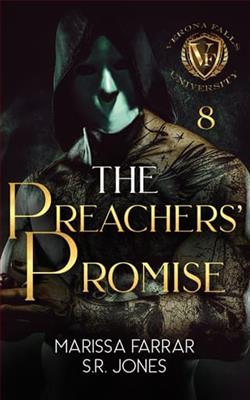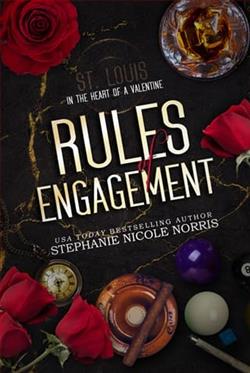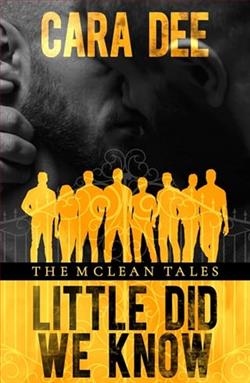Page 1 of Dominion
PROLOGUE
On the first day of January, in the year two-thousand and twelve, the world endured a catastrophe of epic proportions and lost over half its population. Billions perished during what became known as the Great Calamity, or The Gods’ Revenge by the survivors. During the event, which took place at the same time all over the globe, the oceans swelled into waves over a hundred feet tall, creating the highest and most devastating tidal waves ever recorded in history. All lakes, ponds, and rivers rose, flooding lands and drowning people and animals.
The ground the world over shook and opened up, swallowing everything in the vicinity, even in locations that were not accustomed to earthquakes. Hurricanes, tornadoes, and typhoons ravaged the land and water. Volcanos erupted, spilling molting lava and ash on everyone as they fled for their lives. Fires burned what was left for days on end, destroying trees, homes, and killing more animals and humans.
Just when the survivors thought it was over, as they searched the smoldering rubble for their loved ones, their belongings, and some kind of semblance of a world they once knew—the second wave of the calamity hit. The ground began to shift, creating more natural disasters, killing even more of the population. The Earth began to reform itself as lands that had once been separated started to come back together. In thirty days, the world had less than a billion people left, all sharing one land under four gods.
Those four gods, the people quickly learned, were the God of Fire, Eloy, the God of Water, Kijani, the God of Wind, Simeon, and the God of Earth, Odessa. They had come to earth as they had done in the past over six millennia ago to cleanse the world of what they felt was its human corruption. That event of the past was known as the biblical great flood, where the story of Noah and his Ark became legend.
Although the gods had visited Earth during that time, they had not stayed. The Earth had been cleansed, new life could begin and their job had been completed. They succumbed to the flood they had created and their celestial forms returned to heaven. However, the message had been sent and the world began anew once the waters receded. For over six-thousand years, people flourished. They created new technologies that were just as wondrous as they were damaging.
For every advancement of the printing press, came the destruction of more trees. For every house that was made with granite counter tops, the Earth’s core was weakened. For every resource that was syphoned from the planet, nature suffered. Animals went extinct or on endangered lists. People themselves were even considered resources for another man’s will.
The gods watched it all unfold over those many millennia, seeing that even after their last intervention with the great flood, humanity had not learned its lesson. The four of them came to the conclusion that humans could not be trusted to hold domain over the kingdom that they’d been given. The fifth god—Hersi—the one who held dominion over all life—agreed. They knew that they had to do something, and that something came in the form of the Great Calamity.
However, they had to wait until the right moment to come back to Earth, as the level of havoc they wanted to wreak could only be done while they were on Earth and not in the heavens. Such was the rule set by the God Hersi. So, Odessa, Eloy, Simeon, and Kijani had to wait until human vessels were born into the world that could hold the sheer power of their celestial essence.
The moment came in the year two-thousand at the stroke of midnight. Only separated by a matter of hours and time zones, four humans came into this world stillborn, at first. Then to the doctors’ surprise, life flowed into their tiny infant bodies. Unbeknownst to the parents and those doctors, four vengeful gods had just entered their realm. Once the gods reached the age of twelve, they finally had the strength to cleanse the world again, and they did. That day happened in two thousand-twelve.
This time, the gods didn’t leave quietly as they had done before. This time, they didn’t return to the God Hersi, thus disobeying Hersi’s command, with severe consequences. Years after the Great Calamity, the gods’ human bodies still continued to age, but at an extremely slow rate. It was the only failsafe Hersi had, not to make them immortal. Their celestial essence did preserve their human bodies well enough to have long lives, however.
During all this time, the four gods gave into the weaknesses of their human flesh. They indulged in their human emotions and desires. Where they had left the humans to their own devices before, now they wanted to be worshipped as the gods they were. The wanted the human devotion they felt they were owed. Their vanity took over and they exposed themselves to the humans who were still struggling to rebuild in a world that was devastated by every natural disaster known and unknown to man. Seeing true power before their very eyes gave the human race something else to believe in.
Eloy, Odessa, Kijani, and Simeon had united the survivors of the human race under one religion, but not everyone was willing to worship the four gods, and war broke out among the believers and the non-believers. A ten-year Godwar claimed even more lives, leaving less than half a billion people alive. Those who did not parish but still refused to worship the gods moved as far as they could from them into the desolate areas of each celestial city, which became known as the badlands.
The gods knew they had to keep control over the humans, so they established a new social order to create an elitist society. Those whom the gods deemed worthy, those humans who could give back to them the most, lived closer to their temples, which the humans built. And those the gods did not care about lived further away and had less resources and luxuries. This was a way to insure that humans would always want to worship and serve them and, above all, fear them. Because they were not immortal and could die, creating the new world this way meant they would remain protected.
With this new divine governing system in place, the humans did whatever they could to appease the gods and gain their favor. They learned that the gods shared in the same desires as they did, so the gods were honored with flesh for their sexual delights, artists to perform for their entertainment, and blood and sacrifice to sate their blood lust for sport.
The offering of the Games became the most desired by the gods. For them, it overshadowed all other forms of entertainment and encompassed them as well. For over two-hundred years, its popularity had only grown. Men and women would be captured, enslaved, and sold to ludi to be trained to fight in the main arena that connected all four cities. Some were born into the ludus and faced the same fate as any other slave of the ludus. With each victory, their respective ludus and city gained in favor from the gods. The battles were brutal, the crowd was viscous, and the gods were insatiable for it all.
And it is here where the tale of one man’s trials and tribulations begin as he fights for his freedom from a world as cruel as it can be beautiful.











